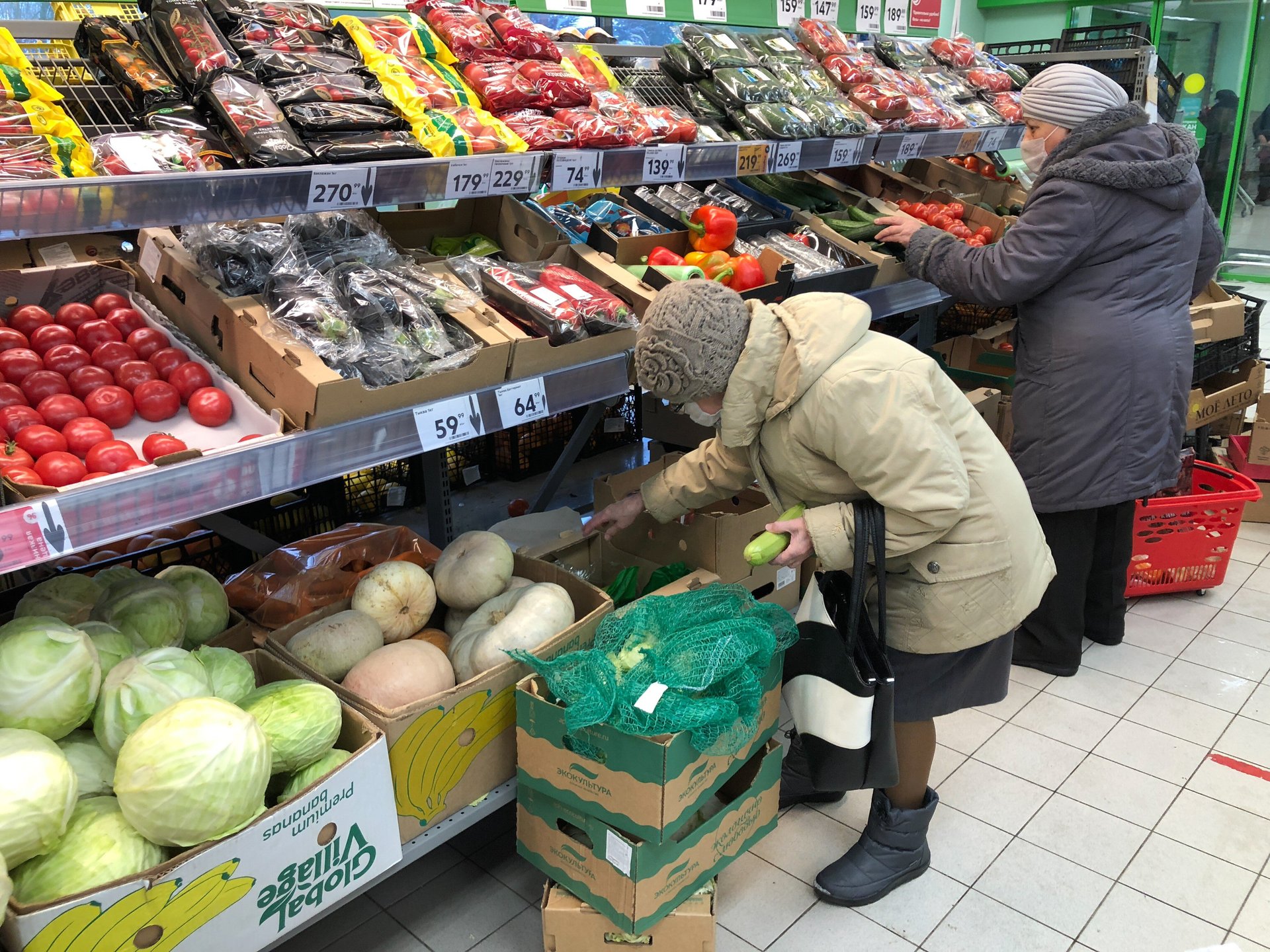According to the Ministry of Economic Development and Rosstat, in the first month of 2022, consumer prices for goods and services in the country increased by an average of 8.73% compared to the same period in 2021.
The achieved level of annual inflation was the highest since January 2016.
Products in Russia over the past year have risen in price by 11.09%, and non-food products - by 8.73%.
At the same time, the cost of services increased by 5.38%.
“Inflationary pressure continues, primarily due to global trends, which, of course, are projected onto our situation ... it is still difficult to say when this pressure will be exhausted,” Dmitry Peskov, press secretary of the Russian president, said the day before.
Earlier, experts from the International Monetary Fund (IMF) called high inflation one of the key challenges for the global economy in 2022.
As experts explained, massive interruptions in the supply of goods against the backdrop of a pandemic constrain activity and contribute to widespread price increases.
In particular, the problem of rising food prices has acquired a global character.
Over the past year, world food prices have risen by almost 20% and in January reached their highest level since April 2011.
This is evidenced by the latest estimates of the Food and Agriculture Organization of the United Nations (FAO).
AGN "Moscow"
In addition to the influence of external factors, the acceleration of inflation in Russia is caused by a number of internal reasons.
This point of view was expressed in an interview with RT by Nikita Maslennikov, head of the Finance and Economics department at the Institute of Contemporary Development.
According to him, consumer demand in the country is still higher than supply.
In addition, seasonal features make a certain contribution to the rise in prices, the economist added.
“Inflation in Russia continues to grow by inertia.
At the end of 2021, budget expenditures traditionally grew, and Russians were paid premiums and bonuses.
All this was accompanied by consumer excitement on the eve of the New Year holidays, which led to a noticeable increase in prices, which we are still seeing,” Maslennikov explained.
According to him, the January weakening of the Russian currency also affected inflation to a certain extent.
So, in the first month of 2022, against the backdrop of increased geopolitical tensions, the dollar and euro exchange rates did not increase by about 3% and at the moment rose above 80 and 90 rubles, respectively.
However, today the figures have already dropped to 74-75 and 85-86 rubles.
breaking point
Experts interviewed by RT do not exclude that in the coming weeks inflation in Russia may still grow further.
However, already in the spring, the rate of price growth may begin to slow down, experts say.
“The acceleration of inflation cannot continue forever, there always comes a turning point.
Most likely, in February and even in March, inflation will grow even more, but already in April-May it will fall to a plateau.
Starting in June, when domestic producers of fruit and vegetable products enter the market, the price growth rate will probably begin to decline, ”Georgy Ostapkovich, director of the Center for Market Research at the Institute for Statistical Research and Economics of Knowledge, HSE, suggested in a conversation with RT.
According to the economist, by the end of 2022, inflation in Russia may drop to 5%.
The actions of the Central Bank will partly contribute to this, the expert emphasized.
Recall that back in 2021, to combat rising prices, the Bank of Russia raised the key rate seven times and raised it to 8.5% per annum.
The next meeting of the Board of Directors of the Central Bank is scheduled for February 11.
At the same time, following the results of their first meeting in 2022, the top management of the regulator may raise the rate again, Ostapkovich is sure.
“An increase in the key rate – and now it is expected to rise to 9.5% per annum – always leads to a slowdown in inflation.
Money becomes more expensive, it is more difficult to borrow it, so demand falls, and the rate of price growth slows down.
You can have different attitudes to the decisions of the Central Bank, but economic history shows that the tightening of monetary policy eventually leads to the desired results,” Georgy Ostapkovich explained.
Together with the increase in the rate of the Central Bank, pressure on inflation should be exerted by the actions of the government, the economist believes.
So, earlier the authorities approved a whole list of measures to support the domestic proposal.
“The situation will also depend on the interaction of the government with the trade sector.
As we know, agreements have already been reached with retailers to limit markups on socially important products.
This should have a positive impact on prices,” Ostapkovich added.
It should be noted that the Ministry of Finance of Russia expects to solve problems with inflation in 2022.
This was previously stated by the head of the department Anton Siluanov.
“We are well aware of the challenges that need to be addressed.
We have adopted a budget, we have good coordination with the Central Bank.
Therefore, we believe that we will be able to solve those problems (and first of all the problems of an inflationary nature that we see now).
And we expect positive results by the end of the year,” Siluanov stressed.

